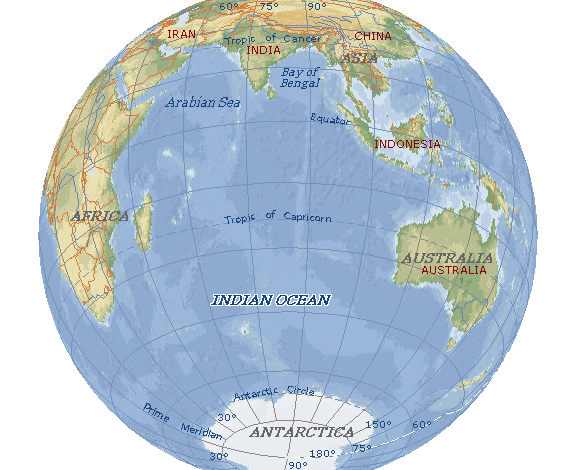TAMIL TIGER attacks under the sea and the recent sinking of a ship-load of arms in Trincomalee harbour have set off alarm bells. The well-known secret is that the Indian Ocean is a lucrative sea-route. Its strategic importance to the Western powers including the US Imperium cannot be underestimated. The mutual concern they have on regional hegemony has a knock-on effect. Half of the world�s maritime traffic is in the Indian ocean.
SARPSCO � a newly launched, the South Asia Regional Port Security Cooperative brings together 9 nations, even India and Pakistan working together. These moves have been orchestrated by the US mainly for the protection of its multi-layered interests in the region.
Now, the Tamil Tigers have been involved in an armed struggle for over 30 years against the Sinhala state demanding self-determination for the Tamil Nation. As part of their defensive strategy, they attack military targets. It is common knowledge, that the Tamil Tigers are a liberation movement not part of any international terror net work.
Many state-sponsored propagandists have conspired to tarnish the Tamil struggle. But they have failed to tar the struggle with same brush stroke. On the other hand, it is however, noteworthy to mention that the Tamil struggle is yet to garner Western sympathy. The Western powers have given lame excuses for their studied silence when there are continuing appalling human rights violations and ethnocide taking place in Sri Lanka.
There could be only one and only reason. And that is economic interests.
So, the talk by the US Coast Guard Rear Admiral of a successful attack �crippling a nation�s economy and the disruption of international shipping worldwide� (see Appendix) is beside the point.
The question is for how long one can beat about the bush?
___________________________________________________
Appendix:
9 Indian Ocean Nations Partner in Security Cooperative
"...But critics say too often these organizations do not implement resolutions, achieve little, are underfunded, and any progress is hampered by traditional regional rivalries, especially between India and Pakistan..."
By Steve Herman
Nalaguraidhoo, Maldives
19 May 2008
A new organization dedicated to Indian Ocean regional
port and maritime security has been launched. The South Asia
Regional Port Security Cooperative, composed of nine
nations, sees such traditional rivals as India and Pakistan
making a rare attempt to work together on such issues of
mutual concern. VOA Correspondent Steve Herman reports from
Nalaguraidhoo in the Maldives.
The South Asia Regional Port Security Cooperative, known as
SARPSCO, brings together many of the countries sharing the
waters of the Indian Ocean: Bangladesh, Comoros, India,
Madagascar, the Maldives, Mauritius, Oman, Pakistan and Sri
Lanka.
On hand for the group's unveiling Monday on a remote and
pristine atoll in the Maldives was the country's president,
Maumoon Abdul Gayoom. In a speech broadcast to the nation's
200 inhabited islands, Mr. Gayoom said the nine countries'
vigilance is crucial to combat the maritime threats they
jointly face.
"This conference, with its broad representation, is an
excellent opportunity to chart a new framework for regional
cooperation in this vital area," he said.
Half of the world's international maritime traffic is in the
Indian Ocean region. Of special concern to the group is the
potential disruption to oil shipments, which would have
disastrous economic consequences for the region.
The United States is pledging to support the new multination
initiative, although it will not be a member.
US Coast Guard Rear Admiral Craig Bone speaking at SARPSCO
conference, 19 May 2008
U.S. Coast Guard Rear Admiral Craig E. Bone said it is
necessary to work together on port and maritime security to
save lives and prevent economic damage by thwarting criminal
and terrorist acts before they can be carried out.
"If crimes such as illegal fishing, human smuggling and the
transportation of illegal cargoes and drugs can not be
collectively combated, then neither can terrorism and
piracy," he said.
The admiral said the formation of SARPSCO sends a clear
message and a warning to terrorists and criminals in the
South Asia and Indian Ocean region that they will be
detected, they will be interdicted and their activities will
not be tolerated.
U.S. Ambassador to Sri Lanka and the Maldives, Robert Blake,
Jr., also spoke at the cooperative's inaugural session,
saying the group could do a lot to thwart those thinking of
attacking ports in the Indian Ocean region.
"Cargo containers and international seaports pose
potentially attractive targets for terrorists," he said. "A
successful attack against a port could cripple a nation's
economy and disrupt international shipping worldwide."
SARPSCO is the latest in a series of such economic and
security cooperative initiatives in the region. India
organized an Indian Ocean naval symposium in February.
The South Asian Association of Regional Cooperation was
launched in 1985. But critics say too often these
organizations do not implement resolutions, achieve little,
are underfunded, and any progress is hampered by traditional
regional rivalries, especially between India and Pakistan.


